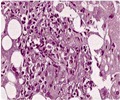
‘Kerala Monkey Fever: A case of Kyasanur Forest Disease (KFD), a viral disease transmitted to humans through a species of ticks usually found on monkeys has been reported in Wayanad district. Therefore, in order to prevent monkey fever, it is necessary to control ticks in forests by insecticide spraying of the endemic zones, wearing adequate clothing and using insect repellents and people who are at high risk should be vaccinated with killed KFD vaccine.’
Tweet it Now
The first case of the disease was reported in the district in 2013. The virus wreaked havoc in the district in 2015 when 102 cases were reported, and 11 people died of the disease. Nine cases were reported in 2016.Monkey fever is a virus fever, belonging to the family Flaviviridae, which also includes yellow fever and dengue fever. The disease is carried by ticks, rodents, birds, etc., and it affects monkeys and human beings. It is a vector-borne disease.
Speaking about this, Padma Shri Awardee, Dr. KK Aggarwal, President, HCFI, said, "The KFD virus is an arbovirus, genus flavivirus, and family Flaviviridae. Humans acquire the infection by the bite of infective ticks. The main reservoirs of the virus are small mammals, especially rats and squirrels. Monkeys are amplifying hosts for the virus. Man is an incidental dead-end host. Human to human transmission has not been reported.
The epidemic period usually begins in October or November and peaks from January to April, then declines by May and June. The incubation period for the virus is 3 to 8 days after an infective tick bite. The case fatality rate is 2 percent to 10 percent and higher in the elderly and in the presence of comorbidities such as liver disease."
The primary signs and symptoms of this condition include high fever, frontal headaches, and hemorrhagic symptoms; while the secondary ones include vomiting, muscle stiffness, tremors, absent reflexes, and mental disturbances.
Advertisement
- Prevention of monkey fever is through control of ticks in forests by insecticide spraying of the endemic zones and "hot spots" in the forests. This mean within 50 m of the area where monkey deaths have occurred; wearing adequate clothing and using insect repellents (DEET).
- At risk population should be vaccinated with killed KFD vaccine.
- There is no specific treatment for KFD; it can only be supported by maintenance
Advertisement











